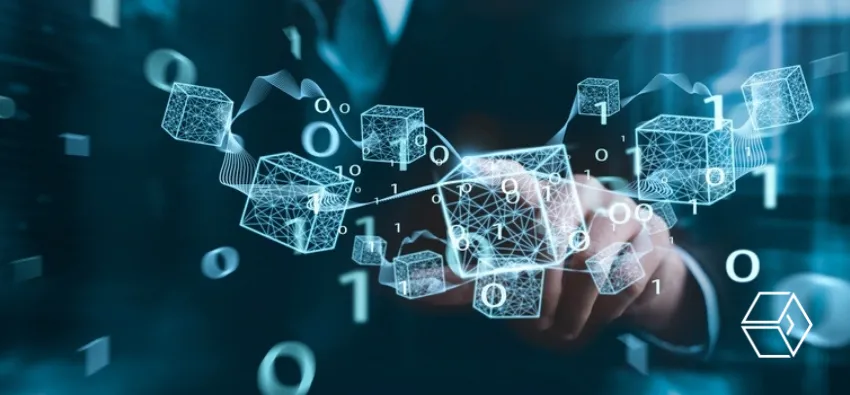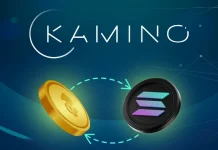
Current infrastructure networks are struggling with scalability issues, causing congestion and disruptions. Maintenance costs are rising due to outdated systems, making them more susceptible to natural disasters and cyberattacks.
DePIN and AI have the ability to alter existing infrastructure by improving resource allocation, saving maintenance costs, and reducing reliance on centralized systems.
Artificial intelligence can optimize operations by analyzing data in real-time, forecasting maintenance demands, and making autonomous decisions. This would be a more efficient, sustainable, and adaptive option. IoTex implements the solution while combining DePIN, blockchain, and IoT.
The Challenges of Traditional Infrastructure
Traditional infrastructure confronts numerous issues, most of which stem from outdated structures combined with rising demand. These networks face expansion challenges, such as keeping up with expanding populations and service demands, which causes congestion and interruptions. These networks are centralized, and the costs associated with maintaining them are high.
Centralized systems frequently encounter challenges when it comes to allocating funds for enhancements and ongoing maintenance. In addition, conventional networks expose services and stability to the peril of cyber attacks and natural disasters.
Additionally, geographical limitations restrict entry to regions, leading to disparities. Furthermore, efforts to combat the impending climate change are hampered by using fuels to power such aging infrastructures.
DePIN: A New Paradigm for Infrastructure
DePIN, short for Decentralized Physical Infrastructure Networks, is a concept that involves revamping infrastructure systems to function in a way that depends on control and management.
DePIN distributes network functions and decision-making processes across multiple nodes or locations. By reducing dependence on failure points and permitting adaptable resource allocation, this novel methodology seeks to enhance the scalability, resilience, and efficiency of infrastructure networks. DePIN employs technologies such as blockchain distributed ledger technology (DLT) and peer-to-peer networking to facilitate its operations.
By introducing decentralization into infrastructure networks, DePIN has the capacity to fundamentally transform critical services by enhancing their resilience to disruptions, adaptability, and sustainability.
Three significant advantages of DePIN are reshaping the infrastructure sector. The first is its focus on transparency and accountability, which provides all parties with a clear view of operations in order to foster trust and integrity. Secondly, DePIN enhances resource management and efficiency by optimizing asset allocation, waste reduction, and process improvement. Finally, it facilitates universal access to infrastructure, encouraging greater participation and allowing communities to work together for the benefit of all. Fundamentally, DePIN is inaugurating a paradigm shift towards infrastructure management that is responsible, efficient, and inclusive.
The Power of AI in Infrastructure
Artificial Intelligence has great potential to transform infrastructure systems by using data-driven insights to improve operations, increase efficiency, and simplify decision-making processes.
One notable application of AI is predictive maintenance, where AI algorithms analyze sensor data to predict equipment failures, allowing for proactive maintenance to avoid costly downtime.
Another example is real-time traffic flow optimization, which uses AI to analyze traffic patterns, predict congestion, and adjust signal timings or reroute vehicles to reduce gridlock and enhance traffic flow.
Further, AI-driven energy grid management improves electricity distribution by forecasting demand, balancing supply and demand fluctuations, and identifying optimization opportunities.
IoTeX: Bridging DePIN and AI
Decentralized physical infrastructure network (DePIN) developers can use IoTeX as a foundation. It integrates smart devices and the Internet of Things (IoT) with secure, quick blockchain technology.
IoTeX stands at the forefront of innovation, bringing together decentralized networks and artificial intelligence to drive the evolution of traditional infrastructure into effective and sustainable systems.
IoTex uses blockchain technology to offer decentralized oversight and transparent infrastructure operations via a decentralized network. This encourages accountability and equal access.
Furthermore, IoTeX uses artificial intelligence to improve infrastructure management by implementing predictive maintenance algorithms to predict equipment failures, real-time traffic analysis to reduce congestion, and energy grid management solutions to control supply and demand in real time.
Transforming Industries with IoTeX
IoTeX is transforming the administration of cities, particularly in smart cities. The platform provides a decentralized and transparent governance system for infrastructure, ensuring equitable resource access and promoting community engagement.
Artificial intelligence technology improves productivity and sustainability by providing real-time traffic data and intelligent energy grids that effectively manage supply and demand.
In addition to monitoring pollution and air quality, AI-powered sensors also record other environmental variables to aid in policy formulation. The DePIN system from IoTeX is revolutionizing supply chain management by enhancing transparency and trust, simplifying compliance verification, and improving transaction security. Businesses can increase inventory management efficiency and decrease waste by analyzing data from Internet of Things (IoT) devices with AI algorithms.
The incorporation of AI and the DePIN framework of IoTeX enables the gathering of real-time data, analysis, and decision-making tools for environmental monitoring. This empowers communities, organizations, and governments to safeguard ecosystems and public health.
Bringing Blockchain to the Mainstream
The goal of IoTeX’s blockchain implementation is to enhance the user experience by making the technology more accessible, scalable, and interoperable. Through the prioritization of these fundamental principles.
The primary objective of IoTeX is to create a user-friendly transaction environment that facilitates interaction with blockchain applications without requiring advanced technical expertise.
Furthermore, IoTeX prioritizes scalability in order to guarantee transaction processing that is economical in nature. Additionally, the platform’s dedication to interoperability facilitates system integration, which accelerates the adoption of blockchain solutions across industries.
This user-friendly implementation of blockchain technology will undoubtedly have a significant impact on the daily lives of individuals. IoTex guarantees the advancement of confidence, openness, and autonomy in a variety of transactions.
Furthermore, it empowers users to oversee their identities and confidential information, which may result in transformations across industries including healthcare, finance, advertising, and others. Fundamentally, IoTeXs emphasizes the potential for blockchain technology to revolutionize industries by centering on users.
Conclusion
Decentralized physical infrastructure networks (DePIN) and artificial intelligence (AI) are new technologies that could revolutionize several industries. When combined, AI and DePIN have the potential to revolutionize several sectors and communities by creating a future that is smart, fair, and collaborative.
IoTeX aims to promote transparency and confidence in transactions by providing user interfaces and adaptable architecture that will make blockchain technology accessible to all.
Their user-centric approach empowers individuals to take charge of their data, fostering a demand for secure, decentralized networks. Incorporating DePIN with blockchain technology and artificial intelligence could revolutionize supply chains and environmental monitoring in cities, bringing about more sustainability, equality, and empowerment.












